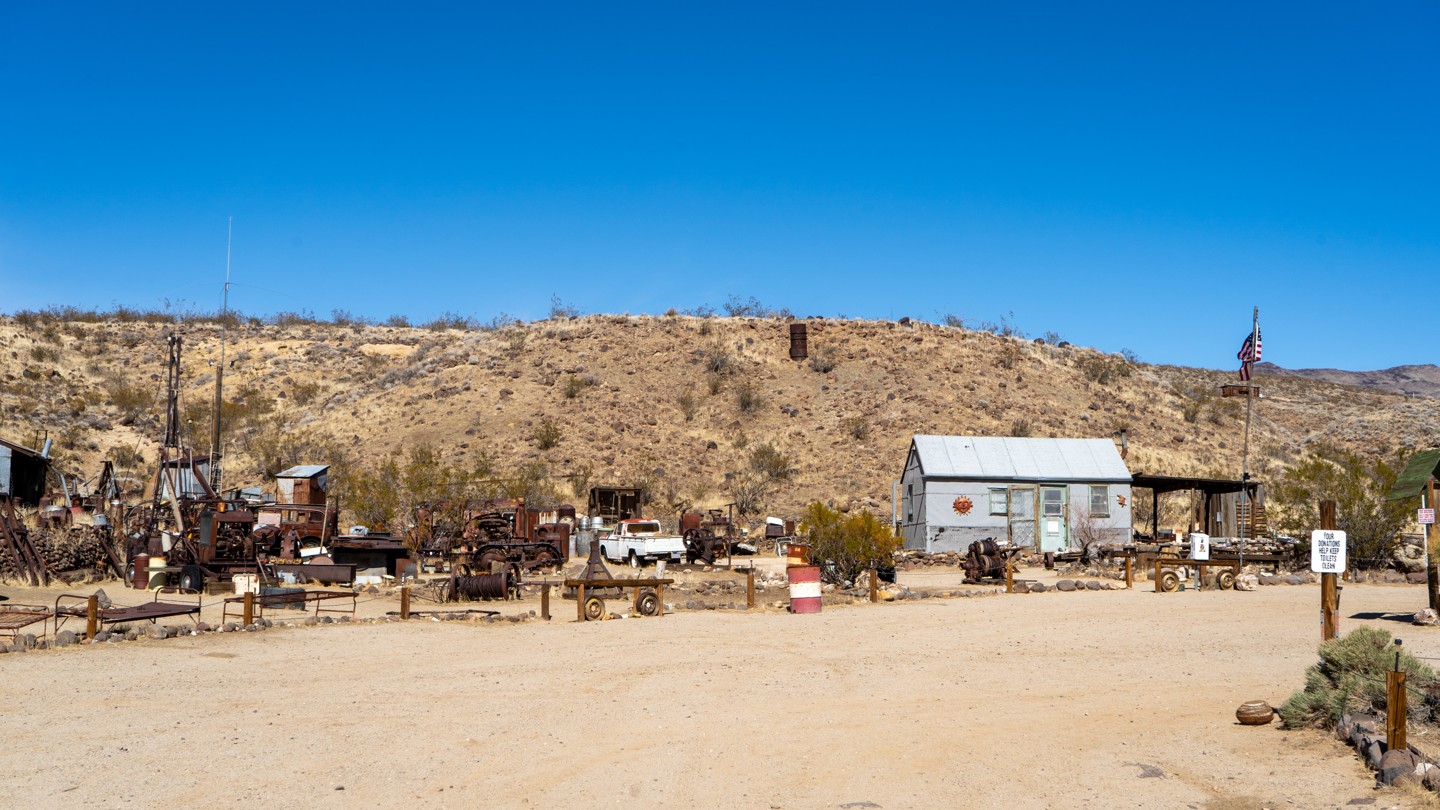Bickel Camp
Every trail guide in full detail for $0.77/week*
- Detailed Waypoints
- Photos and video on the trail
- Comprehensive list of concerns
- Community trail reviews
- PLUS Trails Offroad™ Scout Routes


EP 30 is the trail that Bickel Camp resides on, and it's worth the stop. The Camp itself may or may not be open the day you arrive, but if not, you can look in from outside the gate and look at the historical oddities. EP 30 is an easy, hard-packed sand road with occasional ruts and washboard, suitable for any high clearance vehicle. Dispersed camping can be found along the eastern half. At the Camp, there are two picnic tables set up and shade.
Who was Walt Bickel, and Why is this Camp Important?
Walt Bickel's Camp in Last Chance Canyon, California, became a public historical site thanks to dedicated efforts to preserve his legacy. Bickel, a mechanically inclined Kansas native, moved to California in 1923 and worked in demolitions before becoming a prospector. He first visited the canyon in 1927 and returned in 1933, ultimately filing his own mining claim in 1934. Over the decades, he built a small but self-sufficient camp, relying on collected rainwater, salvaged machine parts, and his ingenuity to survive in the harsh desert.
Despite his dreams of striking gold, Bickel primarily supported his family through odd jobs and later served in the Army during World War II, where he invented a tool for rapidly changing machine gun barrels. After his discharge, he returned to Last Chance Canyon, living there full-time and welcoming visitors with stories, home-cooked meals, and lessons in gold panning.
By the late 1980s, government regulations threatened Bickel's way of life. The Bureau of Land Management (BLM) cracked down on long-term residents on public land, and in 1987, they inspected Bickel's Camp to determine whether he could remain. Unfortunately, just hours before the inspection, Bickel suffered a stroke, forcing him into a nursing home. The BLM later deemed his operation too small for residency, putting the Camp at risk of demolition.
In 1989, Bickel's supporters successfully negotiated with the BLM to preserve the site as a museum, allowing a caretaker to reside there. Today, visitors can explore the Camp, which remains much as Bickel left it. Bickel's ingenuity and desert survival legacy endures with a caretaker on-site, offering a glimpse into a bygone era for future generations.


